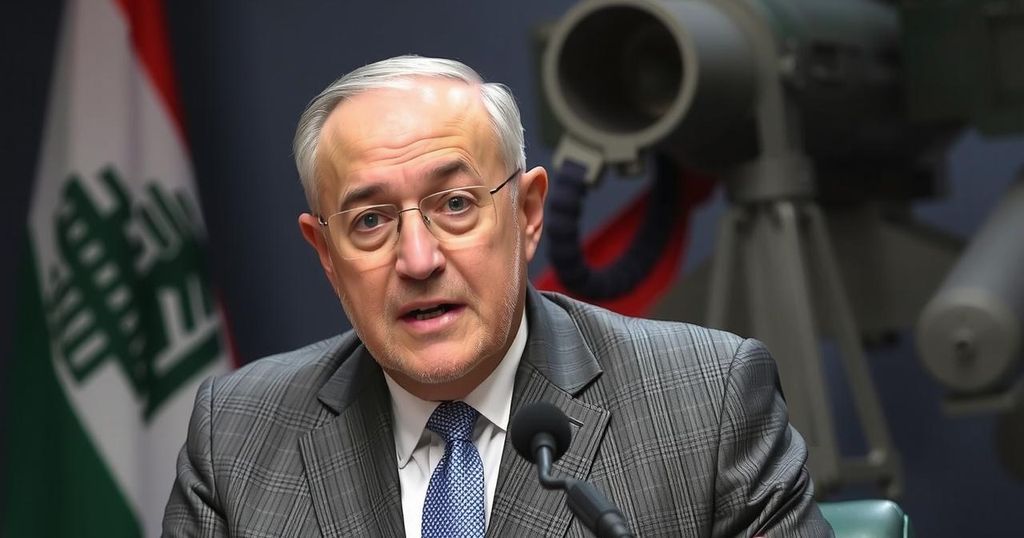Lebanon PM Denounces Israeli Airstrike on Khiam as Treachery

Lebanon’s Prime Minister Najib Mikati condemned an Israeli airstrike on Khiam, calling it “treachery” following the Lebanese army’s deployment under a recently brokered ceasefire. The strike occurred just hours after Lebanese troops entered the town, leading to renewed tensions. Calls for international investigation into potential war crimes by Israeli forces have also emerged amid ongoing violence in the region.
BEIRUT: Caretaker Prime Minister Najib Mikati condemned Israel’s recent airstrike on the border town of Khiam, deeming it an act of “treachery” that took place just hours after the Lebanese army began a deployment there under a new ceasefire agreement. This ceasefire, which was facilitated by the United States, aimed to halt hostilities between the Israeli army and Hezbollah. Mikati criticized the timing of the Israeli attack, expressing concern over violations that undermined international commitments. He urged the US and France, who brokered the truce, to take decisive action against Israeli aggression.
Shortly after the Lebanese forces entered Khiam, Israeli strikes reportedly hit the town square, intensifying tensions in the region. The area, strategically located less than five kilometers from the Israeli border, was previously occupied by Israeli troops during military operations in southern Lebanon. Despite the rocky commencement of the ceasefire, the Lebanese army positioned several units in the region after witnessing an Israeli withdrawal.
General Erik Kurilla, the leader of the US Central Command, indicated that the Israeli pullout was a vital step towards achieving lasting peace and averting further hostilities. However, even as Israeli forces initially withdrew, they conducted multiple airspace violations and low-altitude reconnaissance missions across Lebanon. An ongoing search for victims of the past Israeli bombardments continues, with reports of human remains discovered in the rubble of destroyed buildings.
Amidst rising tensions, Parliament Speaker Nabih Berri engaged in discussions concerning the latest developments, highlighting Hezbollah’s current strategy of restraint against continued Israeli provocations. Meanwhile, Amnesty International has categorized recent Israeli airstrikes that resulted in numerous civilian casualties as potential war crimes, emphasizing the need for an independent investigation into these acts.
Actors in the ongoing conflict confront a complex landscape as Lebanon grapples with security vulnerabilities, international scrutiny, and regional tensions, prompting urgent calls for accountability and stabilization efforts.
The confrontation between Israel and Hezbollah has led to significant instability in Lebanon. The recent deployment of Lebanese forces in areas like Khiam, under a US-brokered ceasefire, represents a strategic attempt to restore peace and curb hostilities. The failure of this ceasefire due to Israeli airstrikes complicates the situation further and raises questions about the effectiveness of international diplomatic efforts to maintain stability in the region.
The events following Israel’s airstrike on Khiam highlight the fragility of the ceasefire agreement and the alarming reality of ongoing military aggression in the region. Prime Minister Mikati’s strong condemnation reflects the concerns of the Lebanese government regarding national security and foreign intervention. Furthermore, the calls for accountability from international organizations underscore the urgent need for a comprehensive approach to peace in Lebanon, placing pressure on global powers to ensure adherence to international humanitarian law.
Original Source: www.arabnews.com








